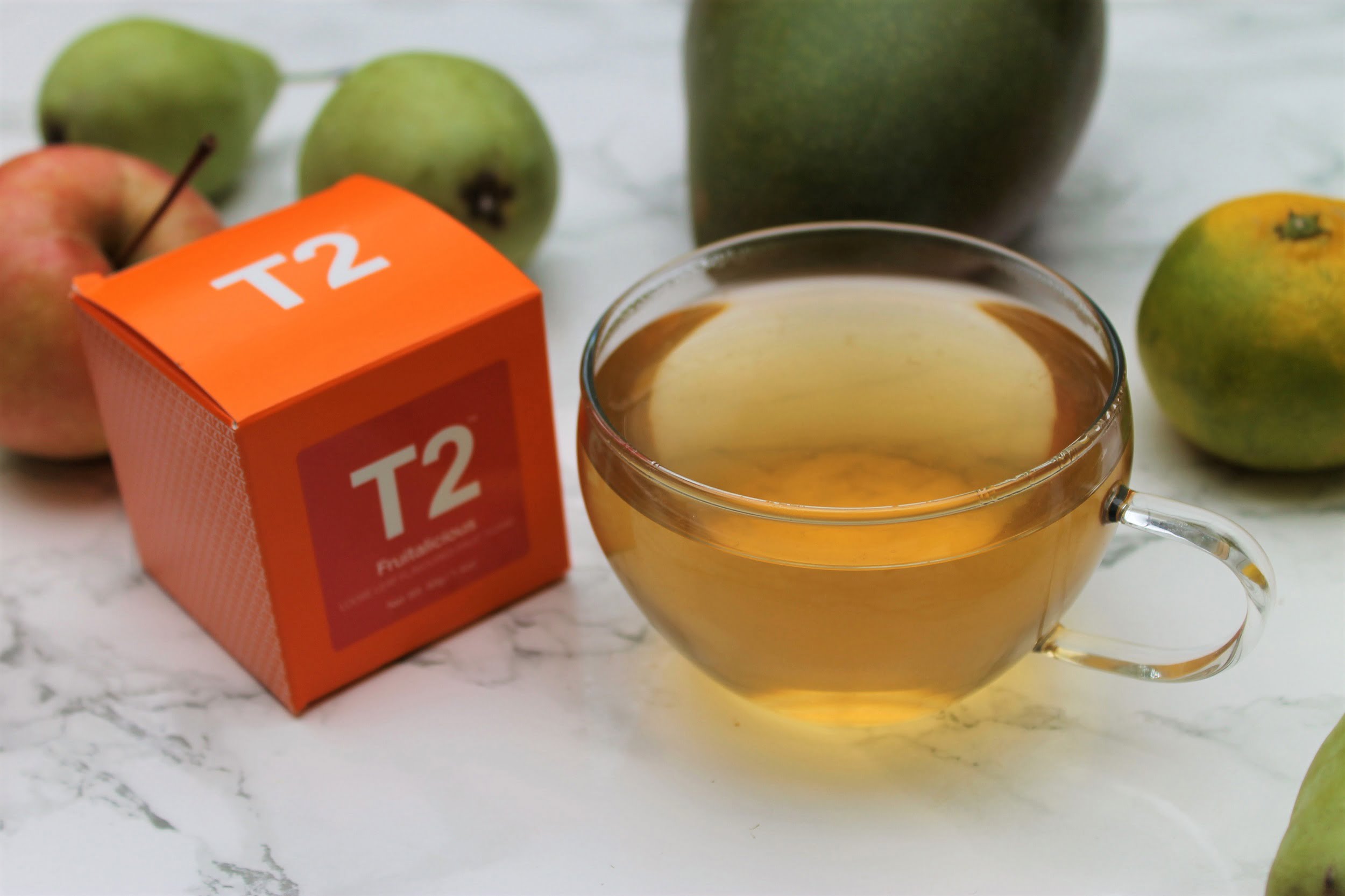
Fruit Tea Guide – Where to Buy It, How to Brew It

A sweet and delicious cup of fruit tea – I love that! But if you are new to tea, you may be unsure about what exactly fruit tea entails, what kind of fruit tea to buy, and how best to prepare it. Well, you’ve come to the right place. In this fruity tea guide, you’ll find out all you need to know plus some personal recommendations of fruit teas that I have reviewed at Immortal Wordsmith.
Fruit tea is commonly mixed up with herbal teas, especially as many brands place both in the same category. However, this guide is solely for teas made with fruit. If you are interested in herbal teas (spices, leaves, seeds, stems, roots and flowers) then read my guide to Popular Herbal Teas.
What Are Fruit Teas?
There is a key difference between fruit teas and fruit juice:
- Fruit tea – pieces of fruit (the flesh, skin, rind, seeds, or other part of the fruit) submerged in water, then removed after the flavours have infused.
- Fruit juice – squeezing and compressing the fruit to extract juice, which may then be diluted with water to taste.
Fruit teas you buy from brands, whether they are teabags or loose leaf, are typically made from dried fruit pieces to improve the shelf-life. You will also find that most of them are a mix of fruits and other ingredients. Herbs, spices, and flowers are all common.
That being said, you can also make fruit tea at home using fresh fruit. Find my favourite fruit teas to try below.
How to Brew Fruit Tea (Bags, Loose Leaf, and Fresh)
Brewing fruit tea is super simple. Unlike traditional tea where water temperature and a precise brewing time can make or break the final flavour, you have so much more flexibility with fruit tea. Brew as long as you like, in whatever water temperature you desire from boiling to icy cold.
For fruit teabags: pop one teabag in a mug, pour over your water, let it steep for as long as directed, then remove the teabag with a teaspoon. You can add honey or sugar to taste, but not milk.
For loose leaf: use a metal infuser or a fillable paper teabag (you can find these on Amazon) to brew loose leaf tea. Add 1 teaspoon of the tea to your infuser, making sure to get a little of all the ingredients in every spoonful and place this in your mug. Pour over water and follow the same method as teabags.
For fresh fruit: cut up your fruit into smaller pieces and add these to a jug or teapot. Pour over boiling water and let it steep to the desired strength. Next, place a filter over your mug and pour the fruit tea through it to strain out the fruit pieces. Sweeten to taste.
If you are in doubt, most tea brands provide instructions on the packaging. For fresh teas and unusual teas, you can always Google recipes to find a more precise method and brew time.
8 Fruits That Make Great Tea!
These eight fruits make excellent tea when submerged in water. They are also nice when combined with other ingredients – either additional fruits or traditional tea like green tea or black tea.
Lemon
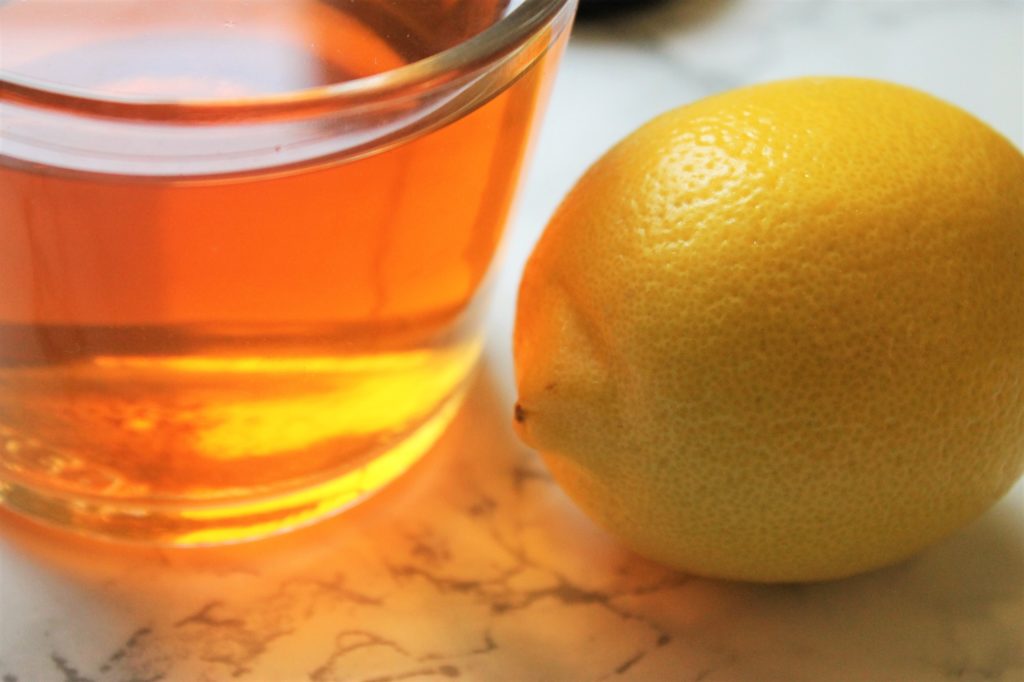
Lemon is a classic fruit to use to make fruit tea. You can simply slice the lemon up and submerge it in water. It is super refreshing iced as well, for those summer months. If you are using lemon juice for a recipe, you can cut the zest and rind into small pieces and dry them out. Then you will have lemon chunks to add to tea blends for a slightly astringent, zesty note.
My favourite lemon teas include Whittard Lemon & Ginger Tea, and Tim Horton’s Honey & Lemon Tea.
Apple
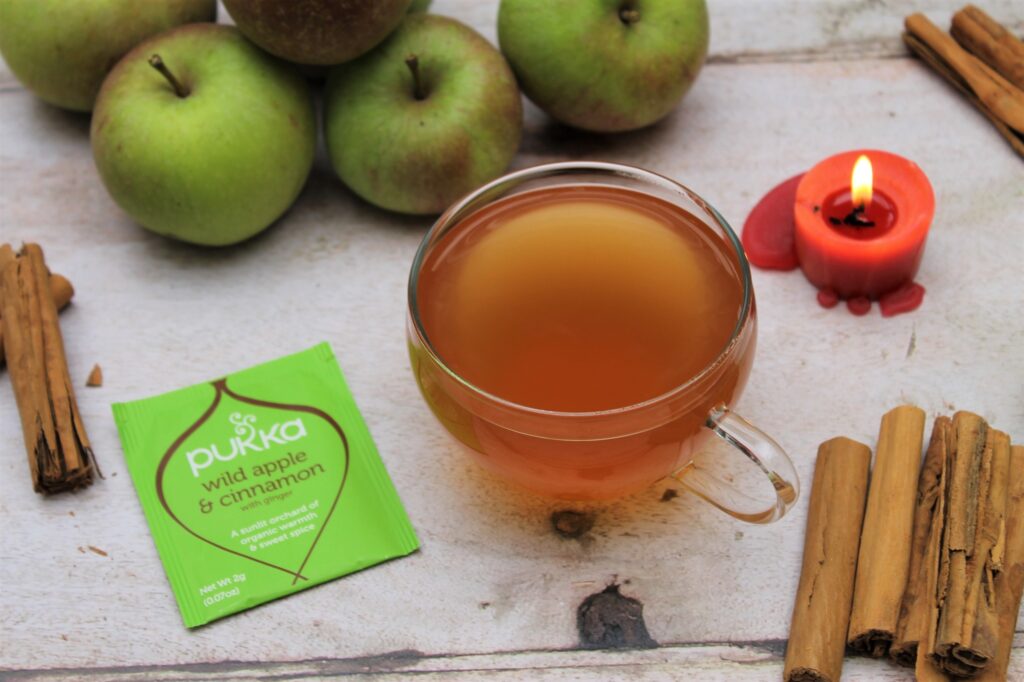
Apple pieces are included in more tea blends than you might expect. This fruit adds a subtly sweet and rounded flavour that adds body to a light tea blend. You can use fresh apple slices in hot water, or try an apple tea drink. I highly recommend trying a Turkish apple tea powder – Lezzo is my preferred brand and you can find them easily on Amazon.
Lime
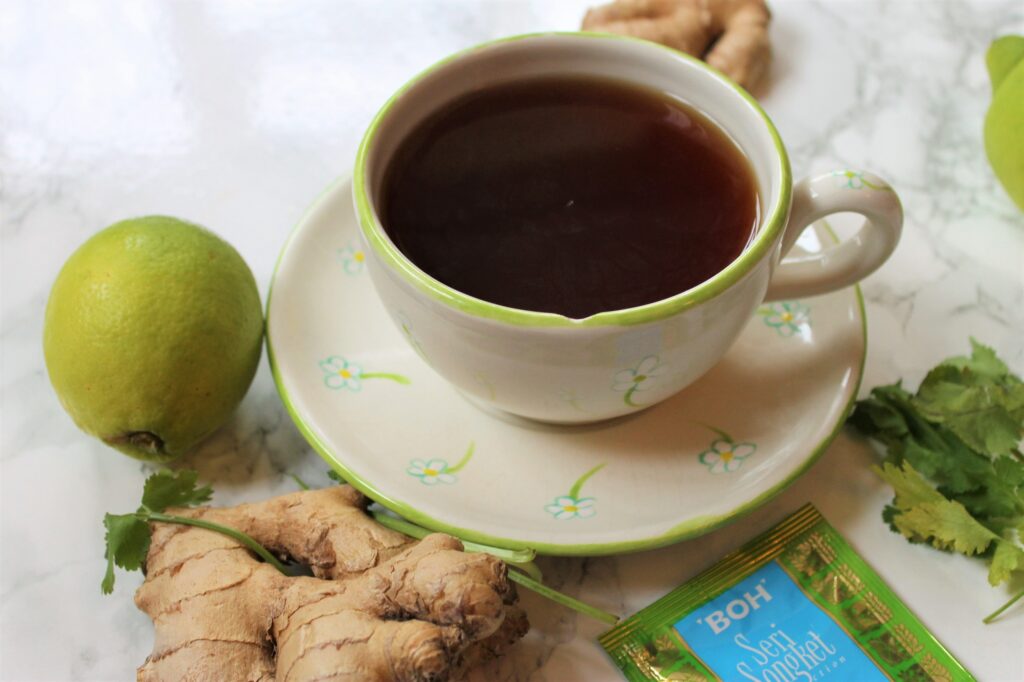
The next best alternative to lemon is lime. When used in a tea blend, lime can add a more tropical note while lemon is more of a classic flavour. Brewing lime slices alongside Earl Grey tea is one of my favourite flavour combinations and it is excellent when poured over ice in the summer, with a generous teaspoon of honey. You can use lime in the same way as lemon – either use the zest and peel, or just slice the fruit to use fresh.
Summer Berries
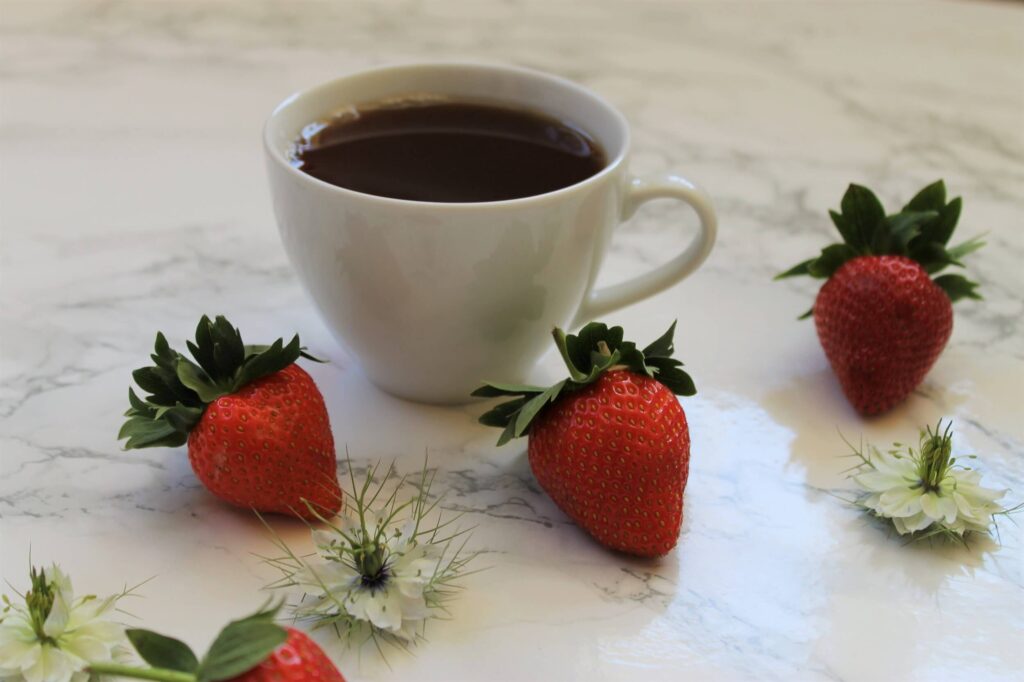
Summer berries includes raspberries, blackberries, strawberries and all manner of currants. These fruits add a good tart sweetness to tea but they do tend to dissolve rapidly after bursting in the hot water – pour your tea through a filter so you don’t end up drinking seeds and berry skins.
Pre-made berry teas are excellent too because they save you the mess of using fresh berries and tastes just as good, but they usually contain hibiscus. Although hibiscus has a strong tart berry flavour, it is actually the flower of the hibiscus plant!
Orange
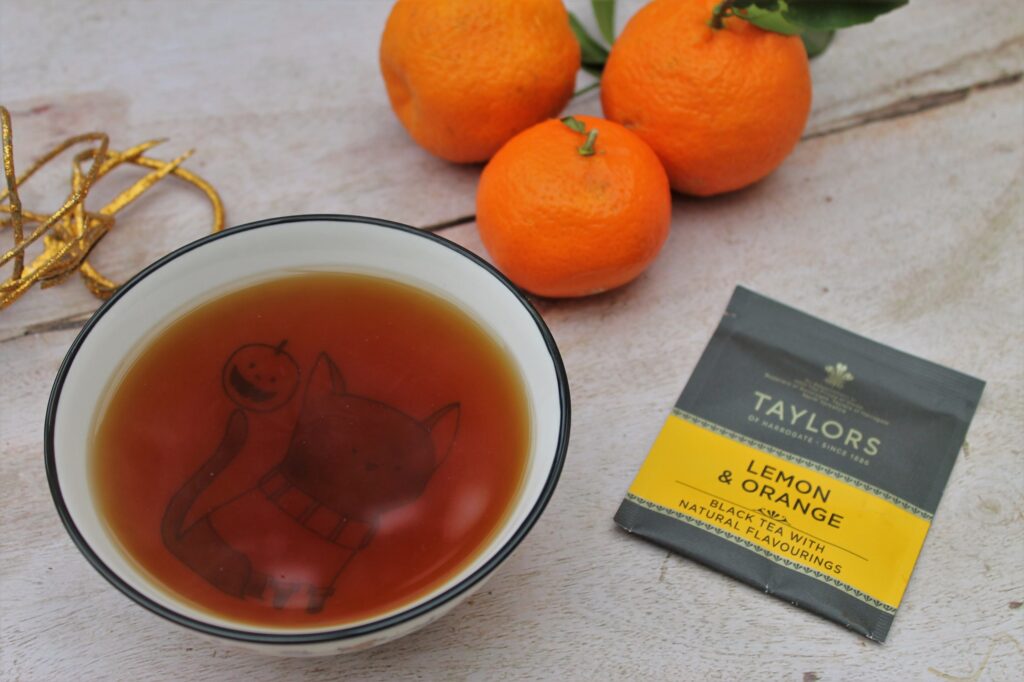
The final citrus fruit on my list of the best fruit teas is orange. Unlike fresh orange juice, orange tea that’s made by infusing the flesh or just the peel is much more subtle. It’s fragrant and sometimes slightly floral with sweet notes. When combined with other flavours (see cranberry below) it is a wonderful fruit to sweeten your tea without becoming overpowering.
Taylors of Harrogate Lemon & Orange Tea is a good example. These citrus flavours work well with black tea too.
Cranberry
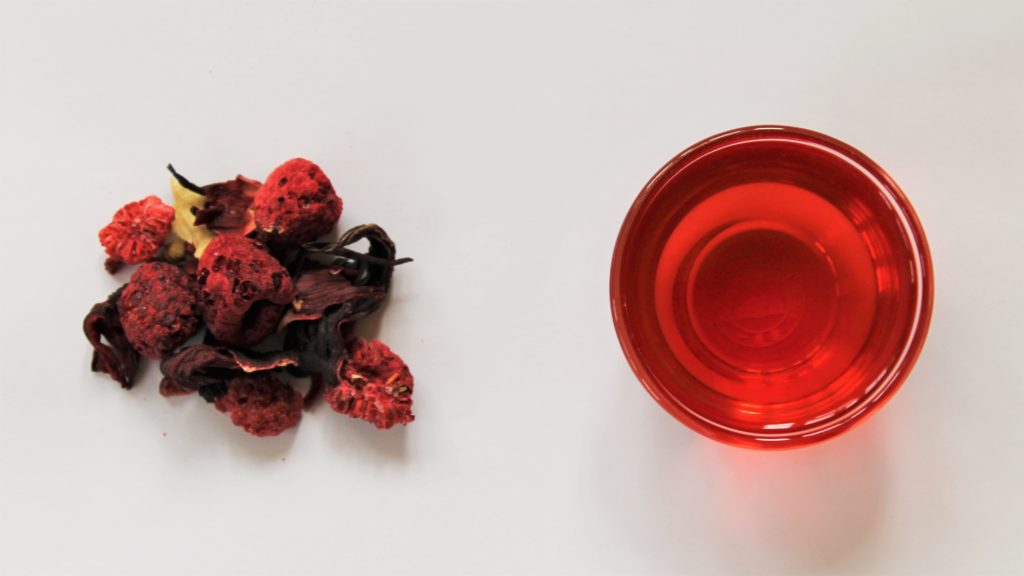
Fresh cranberries are excellent for making tea. During the festive season, I like to bash a handful of fresh cranberries to gently crush them, then add them to my teapot alongside a malty black tea, orange slices, and sprig of rosemary.
If you’ve never tried fresh cranberry before, be warned – it’s not overly sweet. In fact, cranberries are quite drying on your palate and difficult to eat directly. So, brewing them as tea with some sweeter ingredients is perfect. Cranberry and raspberry is a popular combination – see this Lloyd fruit tea blend as an example.
Elderberry
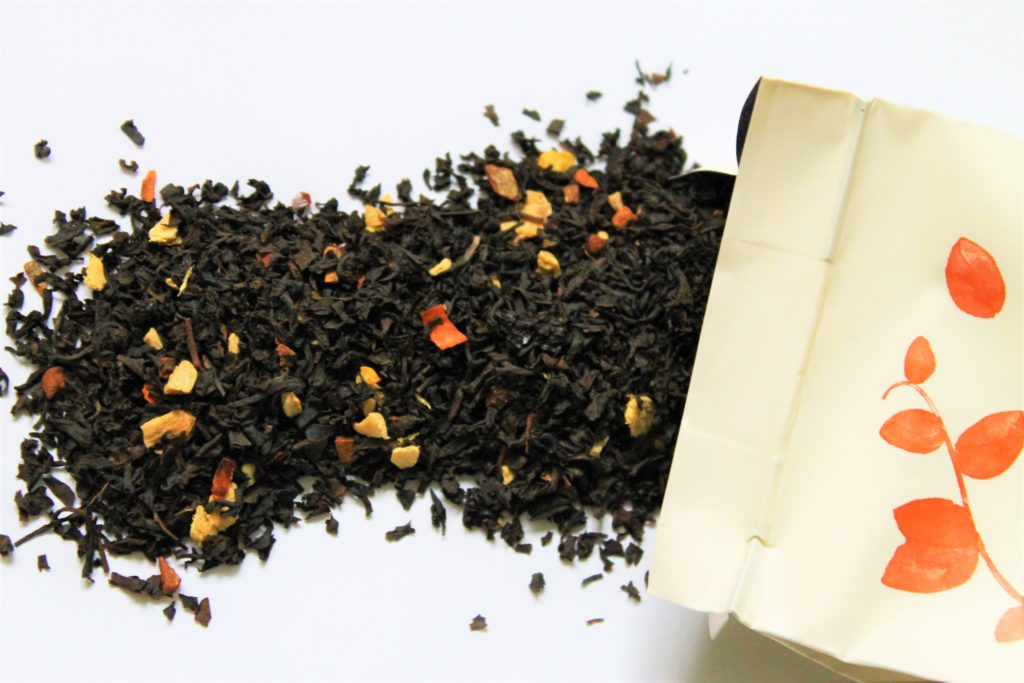
Elderberries are small berries that grow from the elder tree, found in numerous countries around the world including both the UK and USA. While you might not find them at the grocery store, you may be able to track down a wild elderberry tea near you. You can also purchase them online, often in dried format.
Elderberry tea is supposed to be good for flu symptoms too, as a bonus. It can be quite tart, so add a generous amount of honey. Alternatively, use a sweeter blend of ingredients like Pukka Elderberry and Echinacea.
Peach

Peach tea is a great fruity tea to start with, although I would actually recommend using dried peach rather than fresh peach. The soft flesh of this fruit will turn to mush in hot water, resulting in a warm and thick peach drink (bleh). Instead, use dried peach chunks to make your tea. The result will be sweeter, slicker, and more similar to peach candy flavours.
T2 Packs a Peach is an excellent example.
FAQs
Fruit tea made from fresh fruit or dried fruit is good for you. The tea will be rehydrating, contain a small amount of sugar for energy, and maybe some nutrients too. Artificial flavours or added sugar should be avoided.
Fruit teabags are typically made from dried fruit pieces, flowers and herbs. Some also contain artificial or natural flavours, as well as added sugar or sweetener.
Fruit teas are also called infusions or tisanes. Some companies categorise fruit teas as herbal teas, indicating that they are made from plant matter that isn’t from the traditional tea plant (Camellia sinensis).
If you switch from a high-calorie beverage to a low-calorie fruit tea, then the reduction in calories could help you lose weight. Currently, the only tea with evidence linking it to weight loss is green tea. Try combining lemon with green tea for a low-calorie drink with weight loss properties.